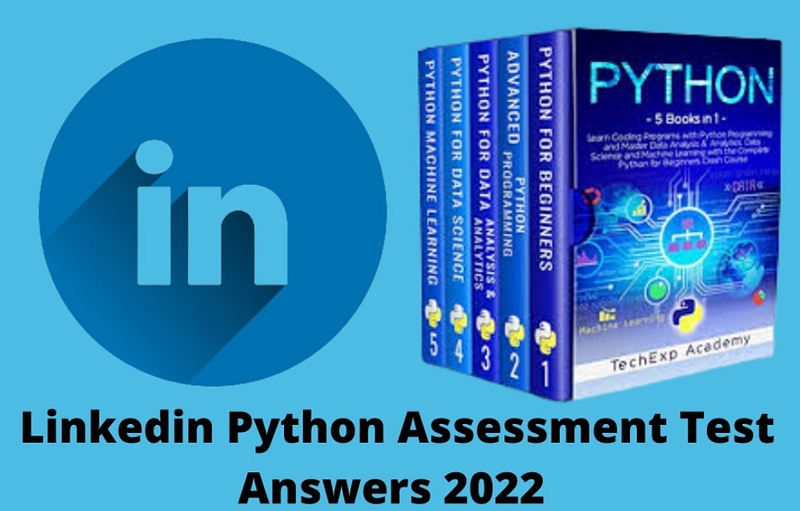The LinkedIn Skill Test Dilemma: A Call for Change
Written on
Understanding LinkedIn Skill Assessments
In September 2019, LinkedIn introduced its "Skill Assessments" feature with the intent of validating users' skills and enhancing their visibility among peers. This system allows users to showcase their abilities by completing assessments that consist of 15 questions, each timed at 90 seconds. The results remain hidden until the final question is submitted, with a passing score set at the 70th percentile. Successful candidates earn a "verified skill" badge, while those who do not pass must wait three months before retaking the test.
The initial appeal of this feature was compelling. LinkedIn aimed to be more than just a social platform for professionals; it sought to establish itself as a multi-faceted career tool. The advantages of these assessments can be summarized as follows:
- Recruiters can efficiently screen profiles, saving valuable time.
- The badges add credibility to user profiles, demonstrating skill levels.
- The assessments provide an easy way for individuals to gauge their expertise.
- They help LinkedIn refine its content recommendations, enhancing user experience.
The Reality Behind the Numbers
While a significant number of users engage with these assessments, the real concern lies not in the volume of participants but in the actual value derived from these tests. Despite LinkedIn’s reputation as a leader in professional networking and recruitment, the effectiveness of these assessments has come into question.
What Has Changed? Time has altered perceptions of LinkedIn's reliability. Although many companies regard LinkedIn as a trusted resource, the actual influence of skill badges on hiring decisions remains unclear. They may create a positive first impression, but they do not necessarily reflect a candidate's technical proficiency.
Quality of Assessments The questions featured in these assessments often lack relevance to real-world applications. For example, in a recent MySQL assessment, I encountered questions focused on trivial terminology rather than practical queries essential for database management.

Knowing terminology alone does not equate to competence; understanding the underlying concepts is crucial. Moreover, fields like Machine Learning heavily rely on mathematics and practical application, yet LinkedIn's assessments tend to prioritize theoretical knowledge.
Flawed Time Constraints The uniform time allocated for all questions is problematic. Certain assessments, such as those for Python, include both syntax and logic questions, subjecting candidates to the same time limits regardless of complexity. Additionally, some lengthy scenario-based questions may overwhelm users, forcing them to make educated guesses rather than demonstrating their true skill levels.
Lack of Oversight LinkedIn does not implement sufficient measures to prevent question leaks. Candidates often encounter the same questions, albeit reordered, undermining the integrity of the assessments.

The absence of regulation regarding the dissemination of questions online further exacerbates the situation, allowing for widespread cheating and invalidating the assessments.
Is the Outcry Justified?
Absolutely. Many thought leaders in the tech community argue that LinkedIn is compromising its standards and diminishing the value of its platform. The time spent on these assessments could be better utilized pursuing meaningful learning opportunities.
Prominent figures like KenJee have proposed enhancements, such as creating dedicated teams to refine the Skill Assessment section, akin to Google's approach with its Data Analytics Certification. Alternatives, such as showcasing live project demonstrations, could better reflect an individual's capabilities than the current assessment system.
The Call for Improvement LinkedIn's original goal was to prioritize skills over formal education in the hiring process. It is high time they reassess the efficacy of their skill assessments to prevent false expectations. If they continue down this path, they risk becoming another platform focused solely on revenue rather than genuine career advancement.
While LinkedIn promotes various courses and training programs to encourage premium memberships, the credibility of its skill badges remains dubious, as even internal hiring processes do not regard these assessments as valid indicators of skill.
The hope is that LinkedIn responds to this collective concern and takes meaningful steps to restore its reputation.
The video titled "The Biggest Mistake Marketers Make & How To Avoid It | AB Testing" explores common pitfalls in marketing strategies and how to mitigate them for better outcomes.
More From the Author:
Maximizing Your Data Skills for Freelance Success
Uncover the lucrative opportunities that your data skills can unlock.
Was the Udacity ML Scholarship Worth It?
A candid review of my experience with the program.
Essential Insights on the Metaverse
Discover transformative aspects of the Metaverse that you need to know.